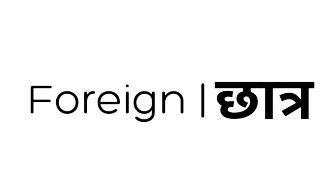Your cart is currently empty!
Studying in South Korea: Everything You Need to Know
Overview
South Korea has become a leading destination for international students due to its world-class education system, vibrant culture, and technological advancements. Known as the “Land of the Morning Calm,” South Korea offers a unique blend of traditional heritage and cutting-edge innovation. With numerous scholarship opportunities, globally ranked universities, and a growing international community, it’s no wonder that students from around the globe are choosing South Korea as their study-abroad destination.
Highlights
Why Study in South Korea?
- Academic Excellence: South Korea boasts some of the top universities in the world, particularly in fields like technology, business, and the arts.
- Scholarships: The South Korean government and universities offer generous scholarships for international students.
- Cultural Richness: Experience a dynamic mix of ancient traditions and modern lifestyles.
- Technological Innovation: Home to tech giants like Samsung and LG, South Korea is at the forefront of global technology.
- Career Opportunities: With a booming economy, South Korea provides ample opportunities for internships and employment, especially in STEM fields.
Top Cities
1. Seoul:
- The capital city and a global hub for business, education, and entertainment.
- Home to prestigious institutions like Seoul National University and Korea University.
2. Busan:
- A coastal city known for its beaches, seafood, and international film festival.
- Hosts Pusan National University and other notable institutions.
3. Daegu:
- A center for fashion and textiles with a vibrant student life.
- Houses Kyungpook National University.
4. Daejeon:
- Known as Korea’s “Silicon Valley” due to its focus on research and technology.
- Home to KAIST (Korea Advanced Institute of Science and Technology).
5. Incheon:
- Features a cosmopolitan atmosphere with its proximity to Seoul and Incheon International Airport.
- Houses the Incheon Global Campus, which includes several international university branches.
Top Universities
- Seoul National University (SNU):
- Consistently ranked as South Korea’s top university.
- Renowned for programs in engineering, business, and social sciences.
- KAIST (Korea Advanced Institute of Science and Technology):
- A leader in science and technology research.
- Offers programs in English for international students.
- Yonsei University:
- One of the oldest private universities in South Korea.
- Known for its international programs and diverse student body.
- Korea University:
- Part of the prestigious SKY universities.
- Renowned for its business, law, and humanities programs.
- POSTECH (Pohang University of Science and Technology):
- Focused on STEM fields and innovation.
- Offers a research-driven environment.
Application
Steps to Apply:
- Research Programs:
- Choose a university and program that aligns with your academic and career goals.
- Check Admission Requirements:
- Most universities require transcripts, recommendation letters, and proof of language proficiency (Korean or English).
- Language Proficiency:
- For Korean: TOPIK (Test of Proficiency in Korean).
- For English: TOEFL or IELTS (if applicable).
- Submit Application:
- Applications are typically submitted online through the university’s portal.
- Interview:
- Some universities may require an interview, either in person or online.
- Acceptance and Visa:
- Once accepted, proceed with the visa application process (details below).
Pros & Cons
Pros:
- High-Quality Education: Globally ranked universities and cutting-edge facilities.
- Scholarships: Generous financial aid for international students.
- Safe Environment: South Korea is known for its low crime rates.
- Cultural Experience: Rich traditions, festivals, and cuisine.
Cons:
- Language Barrier: While many programs are in English, daily life may require Korean proficiency.
- High Academic Pressure: Competitive education system.
- Cost of Living: Cities like Seoul can be expensive.
Cost of Living
Estimated Monthly Expenses:
- Accommodation: $300–$600 (dormitory) or $500–1,000 (off-campus).
- Food: $300–$500.
- Transportation: $50–100.
- Utilities and Internet: $100–150.
- Miscellaneous: $100–200.
Scholarships and part-time work opportunities can help offset costs.
Visa
Types of Visas:
- D-2 (Student Visa): For degree programs (bachelor’s, master’s, or doctoral).
- D-4 (General Training Visa): For non-degree programs like language courses.
Visa Application Process:
- Obtain an acceptance letter from a South Korean institution.
- Submit the following to the nearest South Korean embassy:
- Completed visa application form.
- Passport-sized photos.
- Proof of financial stability.
- Admission letter.
- Visa application fee.
- Attend an interview if required.
Life
Living in South Korea as a student offers a unique mix of opportunities and challenges:
- Accommodation: Most universities offer dormitories, but students can also rent off-campus housing.
- Food: Korean cuisine is diverse and affordable. Popular dishes include bibimbap, kimchi, and bulgogi.
- Transportation: Efficient public transportation system with buses, subways, and trains.
- Culture: Participate in festivals, visit historical sites, and explore modern attractions like K-pop and K-dramas.
- Networking: South Korea’s vibrant student community provides opportunities to make lifelong friends and professional connections.
FAQs
Q1. Do I need to know Korean to study in South Korea?
- While many universities offer programs in English, knowing basic Korean is beneficial for daily life.
Q2. Can international students work part-time?
- Yes, students with a valid visa can work part-time, but there are restrictions on hours.
Q3. Are scholarships available for international students?
- Yes, the South Korean government and universities offer various scholarships covering tuition and living expenses.
Q4. What is the duration of degree programs?
- Bachelor’s: 4 years, Master’s: 2 years, PhD: 3–4 years.
Q5. Is South Korea safe for international students?
- Yes, South Korea is considered one of the safest countries with a low crime rate.
By understanding the educational landscape, cultural nuances, and practicalities of living in South Korea, you can make an informed decision and enjoy a fulfilling academic experience in this dynamic country.
